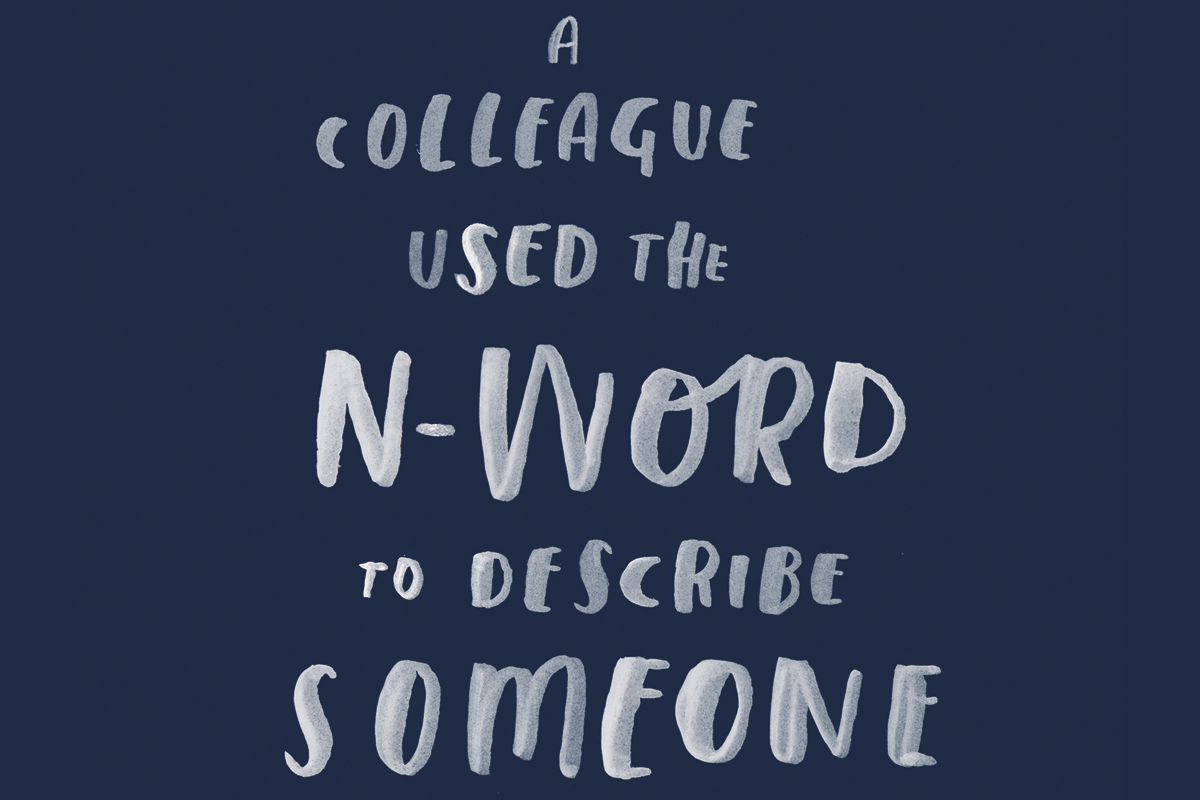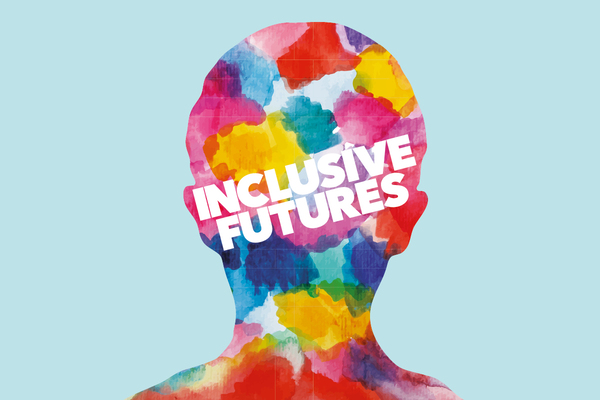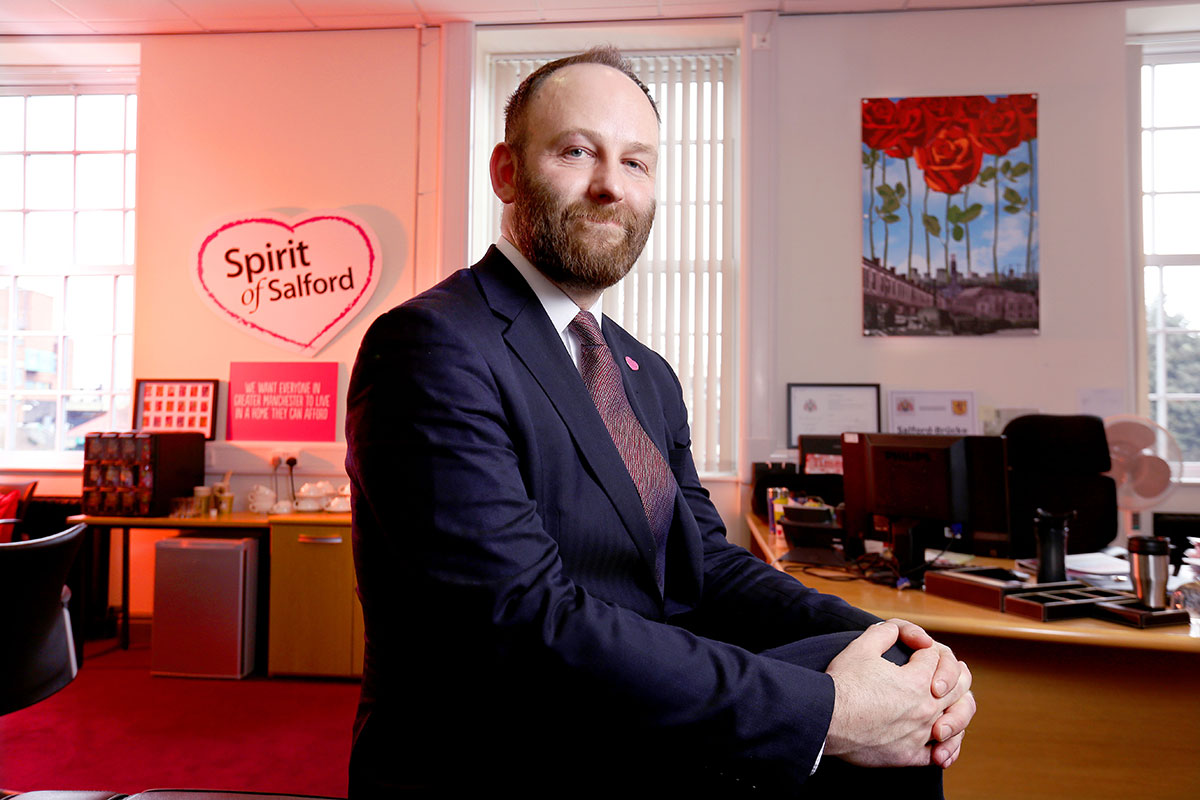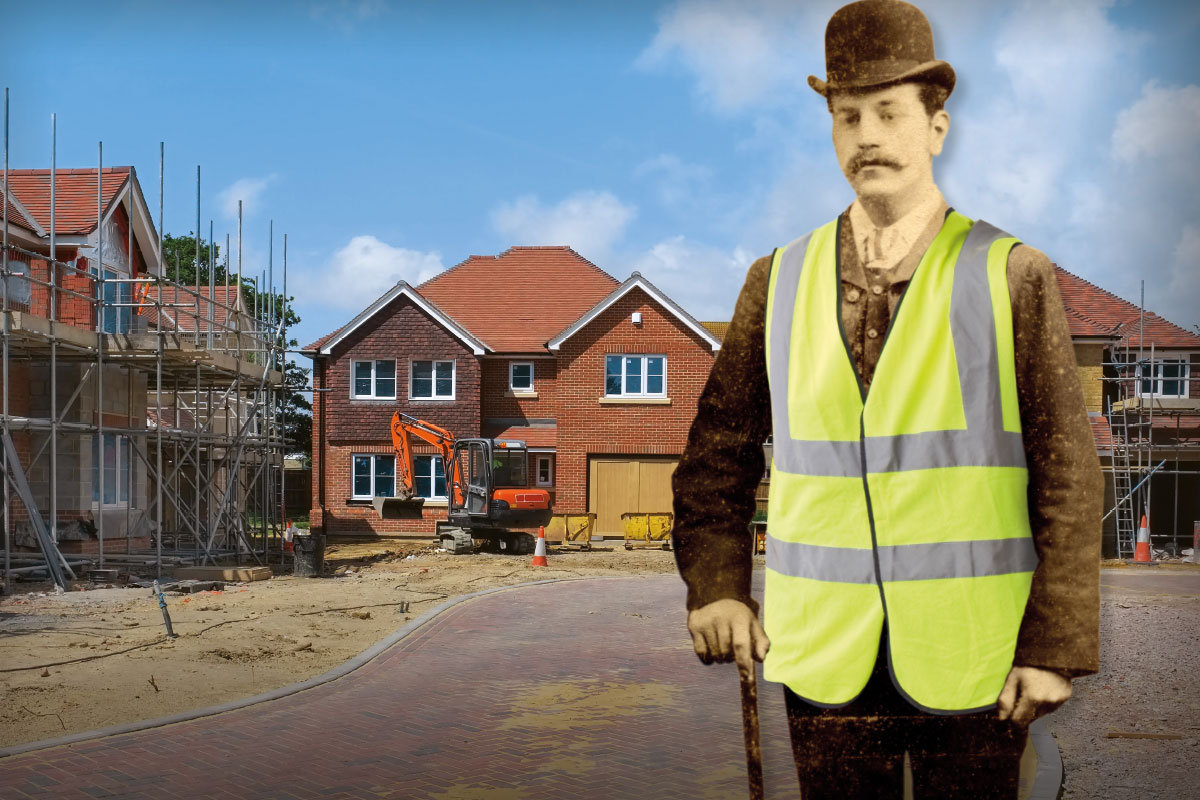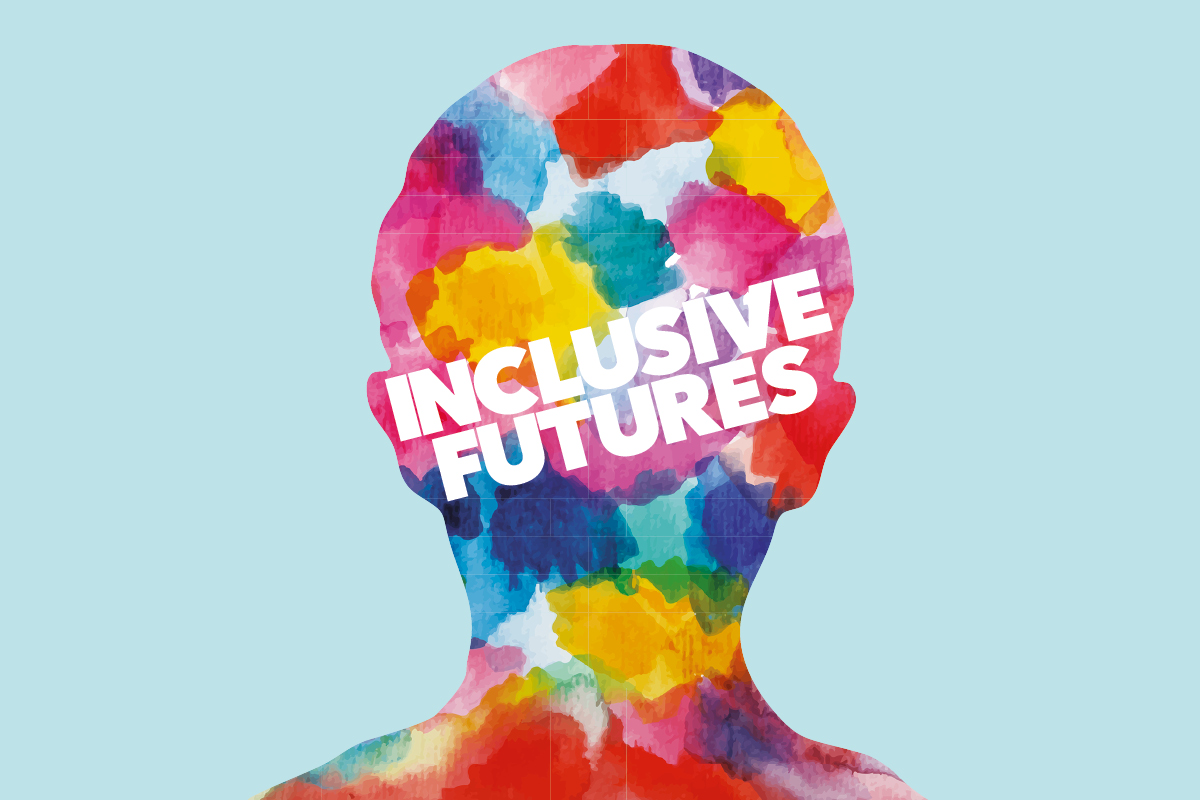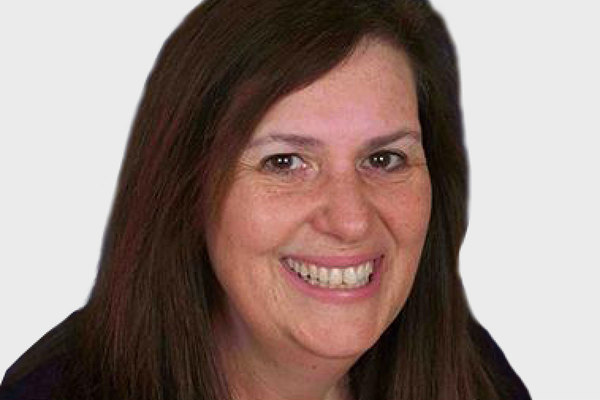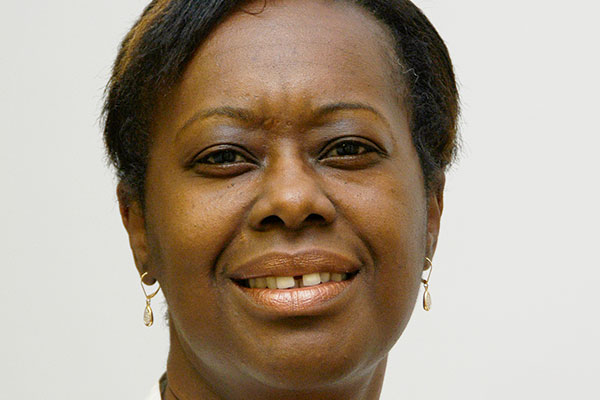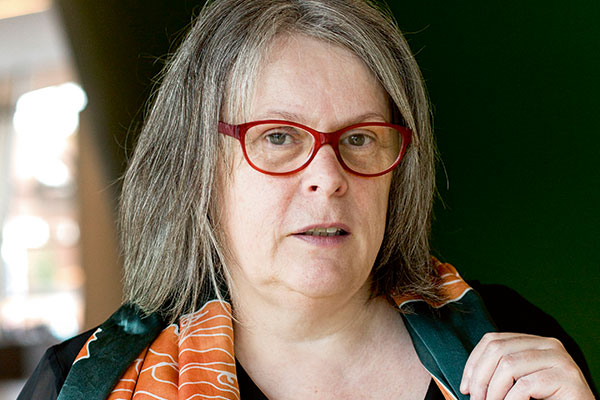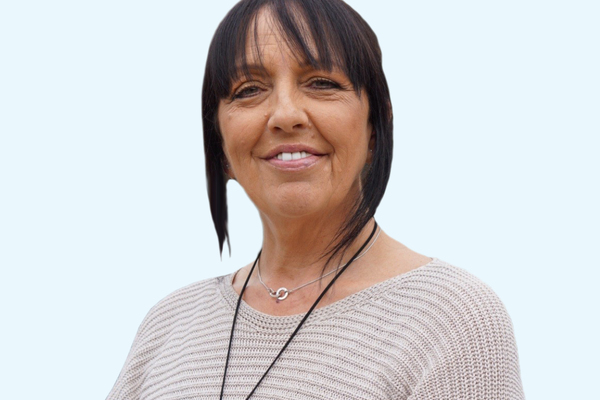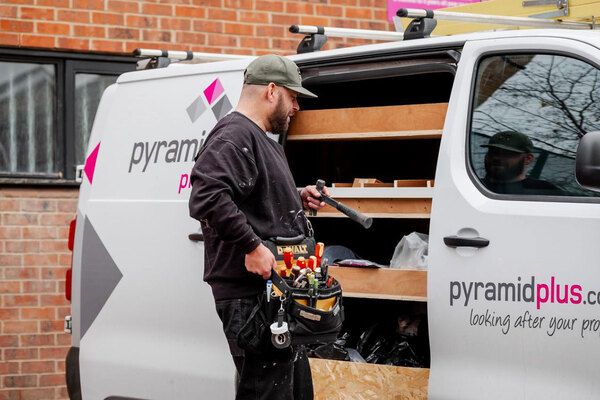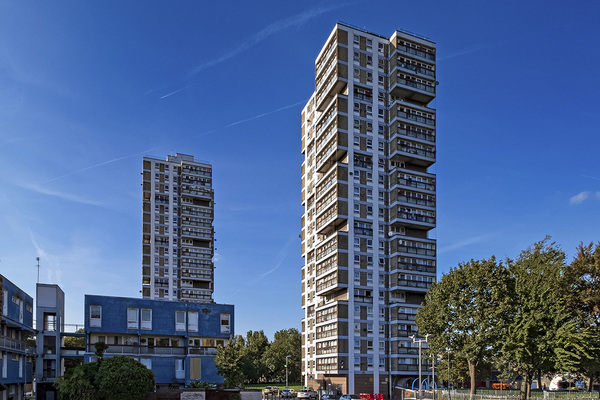You are viewing 1 of your 1 free articles
Revealed: your stories of discrimination in the social housing workplace
Housing professionals have responded to Inside Housing’s survey on discrimination at work, and the results are shocking. Jess McCabe reports. Illustration by Peter Strain
This year, Inside Housing has spent a long time looking at the lack of diversity among the sector’s leaders – we’ve got a whole campaign on it, called Inclusive Futures. We’ve talked about mentoring, and raising up talented people.
An elephant has been wandering about the room the entire time: discrimination and prejudicial attitudes.
If you pay attention to The Sunday Times’ list of the best employers, or the rows of awards lining the shelves of many a social landlord, you might be under the impression the housing sector is a modern workplace utopia. But we know, of course, it is not.
Still, until now we’ve not really known how deep a problem discrimination is in housing, or what impact it has on the over-representation of white, straight men in the sector’s top jobs.
But for the first time, Inside Housing has carried out a major survey which casts fresh light on the issue, and the findings are very worrying indeed.
A total of 225 people responded to our survey on discrimination, harassment and microaggressions in the workplace, and we found that problems are rife.
The most common problems are ageism and sexism, with racism not far behind. (It is worth noting that as the whole workforce could potentially experience ageism and roughly half are women, this is perhaps not surprising.)
But problems were reported across all the forms of discrimination covered in the Equality Act 2010, and additional factors not covered by the legislation – for example economic background, for which 18% of respondents had experienced or witnessed negative comments or abusive behaviour.
We asked about problems the survey respondents had experienced themselves – but also what they’d witnessed towards other people. Most reported behaviour both towards themselves (71%) and someone else – perhaps a colleague (67%) or a resident (36%)
Others cited incidents towards interview applicants and the public, and general comments made about an entire group of people.
We also asked who the person responsible for the behaviour was, and the answers show that colleagues at the same level are the biggest problem – but worryingly, line managers and senior managers in organisations are far from excluded.
The severity of some of the racist incidents described by housing professionals in our survey does stand out, especially in light of Inside Housing’s survey findings earlier this year showing that black and minority ethnic (BME) people are particularly underrepresented in housing’s top jobs.
WHO RESPONDED?
Our survey asked about incidents that housing professionals had witnessed – not just experienced. But the breakdown of who responded is still telling. Not all respondents answered all questions, but no question got less than 100 responses.
- 65% of respondents were women; 35% were men
- 79% of respondents work for a housing association, with the remainder smattered across other housing bodies such as councils, ALMOs and charities
- The average age of a respondent was 44
- 13% identified as lesbian, gay or bisexual
- 18% were disabled
Details of some of these incidents are included below (see box: In their own words), and include several separate cases of the use of the N-word by colleagues, managers and residents.
One thing worth noting is the ‘intersectionality’ of many of these problems. The term was coined by American legal scholar Kimberlé Crenshaw to particularly pinpoint the discrimination experienced by African-American women. It’s not just sexism, it’s not just racism – it’s an ugly combination of the two.
Intersectional discrimination is at work in very many of the individual stories told to Inside Housing in this survey, both for black women working in housing and others. Take the example of one woman who had to reapply for her job last winter during a restructure, which involved taking a psychometric test.
“The feedback was that I was probably menopausal! A senior manager then tried to justify what had been said by saying that once you get to 50 you tend to forget things,” she said.
Whether this is sexism, ageism or ageist sexism is hard to pin down – and perhaps naming the problem is beside the point.
% of respondents who have observed negative comments or abusive behaviour relating to:
Based on responses from 225 people
19% of respondents said they had not observed negative comments or abusive behaviour
% of respondents reporting that this behaviour was carried out by:
Based on 157 responses
Ageist comments were often reported by older and younger women. One anecdote told to Inside Housingby a board member was particularly telling. This board member was a younger woman, and in a board meeting she was challenging the business plan being put forward.
The financial advisor, who was an older man, got increasingly irritated by her questions, and suddenly turned to her and said: “Would you just shut up, you stupid little girl.”
The survey respondent said: “Not a single person in the room stood up for me. I fought my corner [but] I left the meeting really angry.” Ultimately this board member did have to resign over the incident.
Many more stories in our survey did not end so well. Forty-eight per cent told us they had not made an official complaint (although only 85 out of 225 respondents chose to answer this question). Of those who did make a report, only 10% were happy with the outcome – compared to 39% who were not.
The survey results throw down a challenge to the sector: will social landlords take action to show that their credentials as good employers amount to more than HR awards and certificates?
In their own words
Some of the comments included may be distressing
“Within [the] past year [a] 23-year-old housing officer [was] dismissed or ignored and described as ‘just a wee girl, what would she know’. Her senior can also be quite condescending but thinks she is being caring and protective.”
“Age discrimination is something I see regularly – people over 55 (access to pension) are leant upon, making life difficult for them through micromanagement or unreasonable requests so that they take early retirement. Race discrimination is made regularly by people who make mistakes about your name and call you another BME colleague’s name. When you challenge them they say ‘well, you look like him/her’. This happened [in] late 2017 last time.”
“A former manager called me a n***** in a text message after he left the organisation. A former manager tore and binned a letter I had handed her for approval on a training course right in front of me, while also telling me I could not attend the training. I felt this was to dehumanise, humiliate and make me feel insignificant because of my ethnicity and background. The list is endless.”
“[A] colleague often commented on my hair type, for example saying as a black woman going swimming my hair would ‘go poof’. He drew diagrams illustrating this. He would also shout out that he didn’t eat foreign muck in an open office. Many colleagues would laugh.”
“‘Hey up, there’s one of your mates,’ [was said] in reference to a black person visiting the office. [The person who made the comment] also referred to a gay colleague in a derogatory manner.”
“During an interview last week my line manager made comments about a person’s age, ie being too young to take on the role. [Another time], a subordinate has referred to my skin tone as being the darkest in a negative way – this refers to colourism (this was a few months ago). A colleague used the N-word to describe someone – this was in the presence of the whole office.”
“Unacceptable behaviour from residents to staff, for example a tenant calling a colleague a ‘house n*****’. I have also witnessed it and been called a stupid woman, been called a bitch where a man would have been called ambitious, had rumours spread about my relationships with men as a way to discredit me and experienced overtly sexual behaviour from male colleagues.”
“[My] contribution and quality of work [was] dismissed due to race and when the same things were done [by] others who were white it was accepted.”
“1) Making fun of Muslims praying. 2) Saying things like ‘why do you wear a scarf?’ 3) I feel out of place because people do not understand why I wear a scarf. 4) When Ramadan comes [it’s] not respected. Instead [people make] remarks like ‘how can you starve yourself?’”
“Being paid less than a male colleague. Being the only female in a team of five managers [and] not getting a training opportunity. When questioned why, being told it’s not because you’re female – I didn’t question because of that, but [it was] interesting that was the reason given. Comments about women managers being bossy, emotional, time of the month.”
“Board members directing questions at a male colleague instead of the responsible female. Board members stating having one female on the board demonstrates diversity. Residents refusing to deal with staff that are of [a] different nationality.”
“Failure to engage with staff from ethnic backgrounds and choosing to regularly engage with young, pretty staff; jokes around the appearance of staff; overly assertive behaviour towards women and remarks such as ‘feisty’ used to describe [a] new senior female exec.”
“Several years ago myself and three colleagues became pregnant at the same time. Our manager was not happy and he planned to advertise our posts internally to other staff from different offices. This would have meant on our return we would have been based at different offices away from our childcare. We were being disadvantaged because we were pregnant. Our union got involved – we had to fight to stop this happening. We were successful and received [an] apology from senior management.”
“Currently our organisation is obsessed with youth and disregards age/experience. The best person for the job gets overlooked in favour of the youngest. I have 20 years left in the work environment and feel consigned to the scrap heap.”
“Director advising [a] junior member of staff not to get pregnant as it will affect her opportunities in the workplace. This happened in January 2018.”
“I work full time and am often (by males and females) asked: ‘So what do you do with the children when you are at work?’”
“Gender [is] used as a dividing characteristic within the office by male staff frequently, and as recently as last week. Repeatedly referring to females (staff and residents) as ‘wifey’. Trying to defer admin tasks to women in the office, excluding the exclusively female team from organisational meetings and discussions.”
“A colleague was promoted to a management position and a senior manager was furious and vocalised this when he found out she was pregnant.”
“Six months ago while in the office a colleague was vocal about gay people, saying it was disgusting and if gay people come on the TV he switches it off.”
“Two colleagues regularly make heterosexist ‘jokes’. Several colleagues shun a transgender colleague.”
“I have a physical disability. My role allowed me flexibility to work from home to enable me to manage my condition and the demands of my role. Following a merger my role was re-designated to be based at an office in London. This meant that I could not accept the substantive post because due to my disability I was unable to travel to London every day. No flexibility was allowed, despite me explaining how my disability meant that I could no longer continue with my role. I felt I had no choice but to leave the organisation. This happened last year.”
“[When an anti-Semitic incident happened] I was so shocked I virtually cried as the person was my line manager who knew I was Jewish. In hindsight and on reflection I regret not taking it further but I just knew that if I did at the time I would have been managed out as the person had a reputation for bullying behaviour. In the same organisation something crude was scribbled on the toilet wall about my sexuality and referred to me engaging in lewd acts. No action could be taken as nobody would own up to it.”
% of respondents to have experienced microaggressions at work relating to:
25% reported they haven't observed any microaggressions
Note: a microaggression is a comment or action that subtly and often unconsciously or unintentionally expresses a prejudiced attitude towards a marginalised group
THE IMPACT ON PEOPLE'S CAREERS
Our survey found that not only do discriminatory attitudes exist, but housing professionals believe they are a factor holding back their careers.
A total of 61% of respondents said they felt they had been talked down to or ignored at work as a result of their sex, race, ethnicity, gender identity, sexuality, religion, nationality, disability or economic background. A further 12% said this had “maybe” happened.
A total of 41% believe their progress at work has been held back.
YOUR STORIES:
“I have not been shortlisted for interviews although [I am] better qualified than white candidates who were.”
“I have been made aware of what a conscientious worker I am. All my work reviews over the years are nothing short of excellent and have been consistently so for close to 10 years. I am assertive and innovative, possess all the skills they need, and yet time and time again I don’t seem to be good enough for any position higher than where I am.”
“Not copied into emails, [not] invited to conferences, and not invited to meetings with other managers. I am the only female manager.”
“There is an assumption women should stick with low-paid, part-time, flexible working – and this obviously harms their career chances. There are few, if any, career development opportunities for those working part time. I think this can mean that my council can miss out on expertise and skills as part-time working does not mean less committed employees. In contrast, male colleagues are not penalised at all for starting families – quite the opposite, as they take prime positions in the gap that women have essentially vacated.”
“[My] line manager constantly talked down to me. In [my] annual appraisal [the] only positive thing he said I did was still attend work while my father was critically ill in hospital. At a presentation for a tender, on leaving my line manager said we had lost the tender due to one of my answers.Two days later we heard we had won the tender. I was the only female involved.”
“[During a] merger with [an] organisation with [a] male-dominated, aggressive culture, female directors missed out on top jobs. [This is] now happening at management levels.”
“Having taken on additional staff and workloads, I applied for a regrade of my post. My director agreed that yes, my current work looked as if it should be graded higher. However, he also said that he didn’t want me to be graded higher and so would take some of the work away from me and
give it to my (male) line manager. Very kindly, he also added that there was no problem with my performance!”
“Once colleagues knew I lived in social housing they no longer spoke to me in the same way. I was no longer asked for opinions in team meetings. [This was] within the last year.”
“At a senior meeting… a colleague handed out pens to everyone in the room – except to me and the only other woman there. He handed us crayons. [This was] three years ago.”
“I feel that being an Asian woman is the reason why I have been overlooked for promotion. I had to leave the organisation in order to progress even though I was perfectly qualified for some of the positions I have applied for.”
Sector comment
“Inside Housing earns its name through this research by outing the extent of abusive and stereotypical behaviour. Survey respondents give clear evidence of unacceptable behaviours on the grounds of each of the nine protected characteristics under the Equality Act 2010 – as well as others, such as economic background, that we at Housing Diversity Network regularly hear about. I kissed my teeth at some of the comments: using the N-word openly in the office, black and white colleagues not being equally recognised, male board members blanking female ones, some not seen as young being consigned to the scrapheap, pregnant women having to win their removed rights, derogatory comments about gay staff, and resident/staff conflict due to different nationalities.”
Raj Patel, chief executive, Housing Diversity Network
“This is disappointing but no surprise. It reinforces the difficulties minorities are facing. This is a sector reputation issue as well as an organisational failure issue. The sector needs to rise to the key challenges beyond denial and commit to making a difference. We have a strategic problem, and leaders must take responsibility to sort it out. We must bring about the culture shift, to live up to our stated values of inclusion and diversity.”
Gina Amoh, chief executive, Inquilab, and chair, BME London Landlords
“The results make incredibly difficult reading and appear to confirm that no area of public life is free from a whole range of discriminatory, offensive and abusive behaviour. This should act as a wake-up call to all who hoped or assumed that these behaviours had been confined to ‘the past’. We need the same high expectations from the frontline to the board and our starting point has to be that we take seriously any reports of behaviour that falls short. There can be no excuses and no hiding places.”
Alison Inman, president, Chartered Institute of Housing
Inclusive Futures
Inside Housing’s Inclusive Futures campaign aims to promote and celebrate diversity and inclusion.
We are pledging to publish diversity audits of our own coverage.
We are also committed to proactively promoting positive role models.
We will do this through the pages of Inside Housing. But we will also seek to support other publications and events organisations to be more inclusive.
Our Inclusive Futures Bureau will provide a database of speakers and commentators from all backgrounds, for use by all media organisations.
We are also challenging readers to take five clear steps to promote diversity, informed by the Chartered Institute of Housing’s diversity commission and the Leadership 2025 project.
THE INCLUSIVE FUTURES CHALLENGE
Inside Housing calls on organisations to sign up to an inclusive future by taking five steps:
Prioritise diversity and inclusion at the top: commitment and persistence from chief executives, directors and chairs in setting goals and monitoring progress.
Collect data on the diversity of your board, leadership and total workforce and publish annually with your annual report. Consider gender, ethnicity, disability, sexuality, age, and representation of tenants on the board.
Set aspirational targets for recruitment to the executive team, board and committees from under-represented groups.
Challenge recruiting staff and agencies to ensure that all shortlists include candidates from under-represented groups.
Make diversity and inclusion a core theme in your talent management strategy to ensure you support people from under-represented groups to progress their careers.
INSIDE HOUSING’S PLEDGES
We will take proactive steps to promote positive role models from under-represented groups and provide information to support change.
We pledge to:
Publish diversity audits: We will audit the diversity of the commentators we feature. We will formalise this process and publish the results for future audits twice a year.
Promote role models: We will work to highlight leading lights from specific under-represented groups, starting in early 2018 with our new BME Leaders List.
Launch Inclusive Futures Bureau: We will work with the sector to compile a database of speakers, commentators and experts from under-represented groups. The bureau will be available to events organisers, media outlets and publications to support them to better represent the talent in the sector.
Take forward the Women in Housing Awards: Inside Housing has taken on these successful awards and will work to grow and develop them.
Convene Inclusive Futures Summit: Our new high-level event will support organisations to develop and implement strategies to become more diverse and inclusive.
